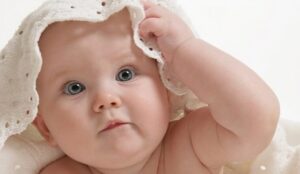 “When are my most fertile days?” Lisa wants to know. She wants a baby soon, and doesn’t want to fool around with just letting it happen. She and her partner James are happy and healthy, enjoying their life together. Their adorable little dog is wonderful, but they want to start a real family of their own.
“When are my most fertile days?” Lisa wants to know. She wants a baby soon, and doesn’t want to fool around with just letting it happen. She and her partner James are happy and healthy, enjoying their life together. Their adorable little dog is wonderful, but they want to start a real family of their own.
When are my most fertile days?
- THE DAYS JUST BEFORE AND DURING OVULATION
So that’s the catch. When do you ovulate? And what is it anyway? Ovulation is when a ripe egg is released from the ovary. You ovulate approximately in the middle of your menstrual cycle. But many factors can affect the exact timing. There are some ways to recognize ovulation is coming, and gone.
Fertile Mucus. The days just before ovulation are fertile, as the body in its infinite wisdom has given you a bigger window of opportunity to get pregnant. This is because of the fertile mucus that helps to keep the sperm alive until the egg is there to be fertilized. You can recognize this fertile time because your cervical mucus will become thick and slippery. It often is like raw egg whites, and may stretch an inch or more between your fingers. You may not have even noticed it before; or if you did you didn’t appreciate that it happens for a reason.
LH Surge. You can also recognize your most fertile days by doing a urine LH stick test. When it is positive that means that leutenizing hormone is increasing (known as LH surge). This will cause ovulation to occur within 24-36 hours.
Basal Body Temperature. After you have already ovulated your basal body temperature will rise slightly, confirming that that you are no longer fertile for that cycle. It is good to take your temperature with a basal thermometer for the entire month so you can see this pattern. Keep track of all those temperatures on a fertility chart. Download a free fertility chart from the internet. (Use a special digital basal thermometer, which is more sensitive than a regular thermometer).
Start paying attention so you can recognize the signs of ovulation that will indicate your most fertile days. This is the time in your cycle that you can get pregnant. Knowing this will increase your chances when trying to conceive, and help it to happen sooner.
It is very important to have a good fertility diet during this time. Not only will it help you get pregnant more easily, but you will have a healthier baby. Read more in the article “Is a Special Fertility Diet Important?”
To Your Vibrant Health!
Veronica Tilden, DO
